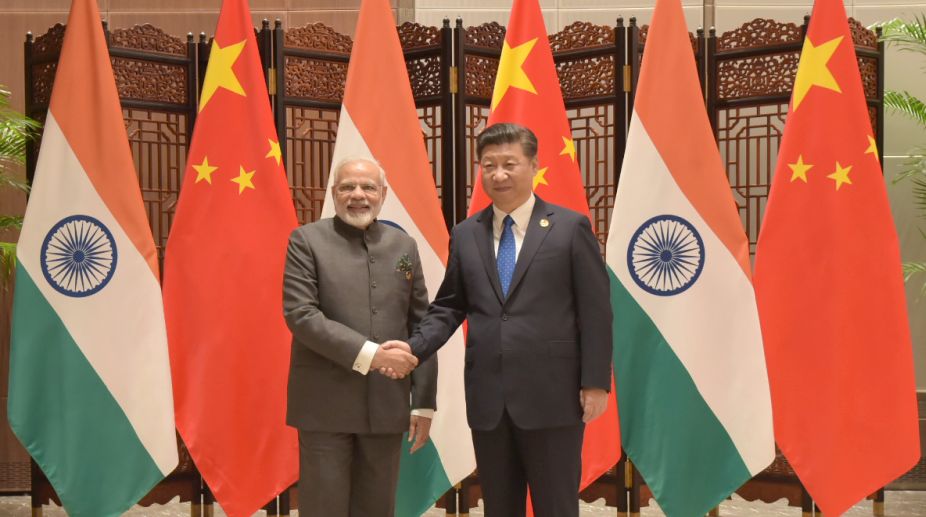Modi is defending the biggest corruption scandal on planet: Rahul on PM’s electoral bonds remark
Rahul also questioned the understanding of PM Modi to run the country.

File Photo (Photo: PIB)
Prime Minister Narendra Modi made a telephone call on Tuesday to Chinese President Xi Jinping to congratulate the latter on his re-election. This is the first conversation between the leaders of the two Asian giants ever since China amended its constitution to make Xi ‘the eternal President’.
The two leaders reportedly reaffirmed their commitment to deepen bilateral ties and promote mutual trust. They agreed that better relations between the nations are integral for making 21st century the ‘Asian century’.
“The two leaders also agreed to continue their close consultations on regional and international issues of mutual interest,” India said in a statement.
Advertisement
The call comes ahead of the Shanghai Cooperation Summit to be held in June in China where Modi and Xi are likely to meet on the sidelines.
Reports say that Xi expressed his country’s willingness to enhance communication with India. PM Modi reportedly told Xi that the re-election proved that the people of China love him.
But in a 30-minute nationalistic speech at the closing session of National People’s Congress, Xi also said that China will not cede a “single inch” of its territory to others and is ready to wage a “bloody battle” to assume its due place in the world.
“The Chinese people and the Chinese nation have a shared conviction that not a single inch of our land will be and can be ceded from China,” Xi said, addressing the closing session of the NPC, the first by a President in recent years.
On 11 March, China’s National People’s Congress voted in favour of removing the two five-year term limits imposed on the President of China and elevated his most trusted man to vice-Presidency thus granting Xi indefinite control over the leadership of Communist Party of China.
Xi, who is now the most powerful man in China’s history after Mao Zedong, gets more time to carry out his policies in China at a time when the country’s acrimonious relations with coastal nations in South China Sea, the not-so-friendly ties with the United States over trade issues, and its increasing influence (and interference) in Indian Ocean Region.
India and China nearly came to an armed conflict when their armies had a 73-day face off at Doklam in the eastern sector of their disputed border last year.
The stand-off was resolved in August, a week ahead of a Modi-Xi bilateral meet on the sidelines of the BRICS summit. But China’s opposition to a UN ban on Pakistani terrorist and JeM chief Maulana Masood Azhar, who plotted terror attacks at bases of Indian armed forces, has also strained their relations.
Advertisement